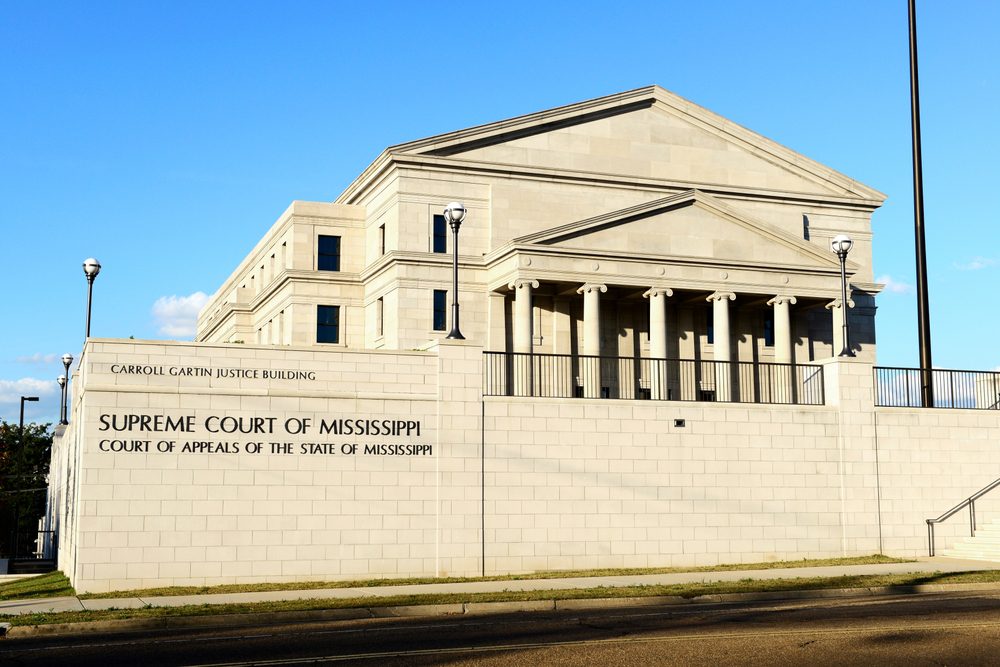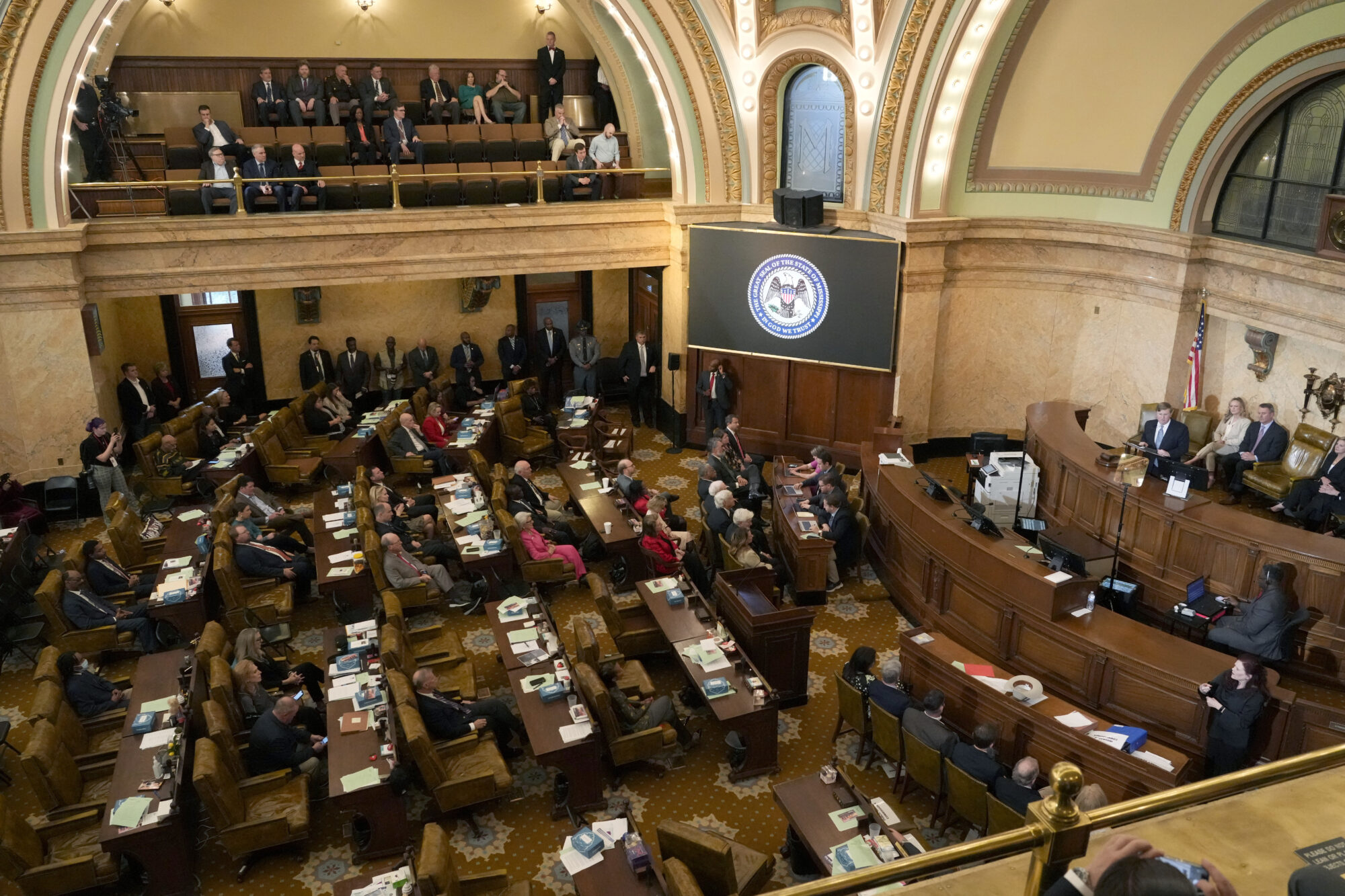
Mississippi Supreme Court, Jackson, MS
The narrative that a court has ruled school choice in Mississippi is unconstitutional, or that the Supreme Court is currently considering the constitutionality of school choice, is unmitigated hogwash.
As excitement over the potential of giving parents power to make education decisions for their own families has grown in Mississippi, opponents of school choice programs have begun advancing a narrative that the Mississippi Supreme Court is presently considering whether those programs are constitutional.
That narrative is not rooted in reality. It is a fictional delay tactic.
Take, as an example, Bobby Harrison’s latest anti-choice missive headlined “Supreme Court sets oral arguments on whether school vouchers are constitutional.” Only the Supreme Court did nothing of the sort.
The lawsuit presently before the Mississippi Supreme Court has zero to do with “school vouchers.” In 2022, the Legislature created the Independent Schools Infrastructure Program. Using American Rescue Plan Act (ARPA) funds from the federal government, the program allocated $10 million in grant money to schools making “investments in water, wastewater, stormwater, broadband and other infrastructure projects.”
The American Civil Liberties Union (ACLU), Mississippi Center for Justice and Democracy Forward filed a lawsuit on behalf of “Parents for Public Schools, Inc.” challenging the constitutionality of this program.
The ACLU cohort argued that Section 208 of the Mississippi Constitution, which prevents the direct appropriation of state education funds to schools that are not free to students, precludes the program. The Hinds County Chancery Court entered an injunction against the Infrastructure Program, which resulted in the State appealing the decision to the Supreme Court.
The State’s arguments, which have not been fairly or accurately represented in coverage, include the fact that the funds at issue are not state education dollars, but federal dollars specifically allocated to the states to mitigate the harm of COVID–harm that was not limited to public schools.
These are not unserious arguments. But irrespective of the outcome of the ACLU suit, the program before the Court in the case is not a school choice program.
Calling a small grant program for COVID-related infrastructure improvements a “school voucher” program is like calling a turnip a saxophone. The two are not remotely the same. A “school voucher” is essentially a guarantee of payment for private school tuition.
Mississippi has three school choice programs that provide students with resources to attend private schools presently in place. None of them have been challenged in court. None of these programs have been ruled unconstitutional.
In 2012, the Legislature passed the Mississippi Dyslexia Therapy Scholarship to provide vouchers to dyslexic students that could be used at public or private schools offering dyslexia therapy. In 2013, the Legislature enacted the Nate Rogers Scholarship for Students with Disabilities, a small program which allows students with speech disabilities to pursue speech therapy at private schools. Finally, the Equal Opportunity for Students with Special Needs program that passed in 2015 provides special needs students with an education savings account that gives them multiple options for how to spend the alloted resources.
Notably, these three programs reveal the difference between “school vouchers” and “education savings accounts.” Where a voucher is specifically for tuition, an education savings account can be used on an assortment of options such as tutoring, books, software or online resources.
All three of these programs have been annually funded by the Legislature. Again, without challenge. Perhaps opponents know that it would be a public relations nightmare to go after special needs children.
What’s more, the State could lose the present lawsuit over COVID infrastructure funding and it have no impact on the constitutionality of school choice in Mississippi. Here’s why. While Section 208 of the Mississippi Constitution prevents direct appropriation of state education dollars to private schools, it does not prevent giving families resources to make their own education decisions.
80 years ago the Mississippi Supreme Court considered a challenge under Section 208 of the Mississippi Constitution to a textbook program that used state education funds to purchase textbooks, including textbooks for children enrolled at private schools. In that case, the Court ruled that since the aid went to “individual pupils” the private schools were not the direct beneficiaries of the program and it was constitutional. The decision and its logic have remained untouched.
In more recent history, state courts across the country that have been called on to interpret their own constitutions in relation to education choice programs have almost universally reached the same conclusion — that there is a difference between a direct appropriation to a private school and an appropriation to a family that then makes its own election on how to spend the resources.
Legal decisions in Nevada, Indiana, Alabama, Wisconsin, Ohio, North Carolina, Illinois, and Arizona have all adopted the same essential logic. The Nevada Supreme Court explained when “public funds are deposited into an education savings account, the funds are no longer ‘public funds’ but are instead the private funds of the individaul parent who established the account.” Similarly, the Indiana Supreme Court ruled that a voucher program did not violate a prohibition on funding religious schools because any tuition paid was the “private, independent selection bny the parents of a program-eligible student.”
People of good faith can disagree over whether education choice is good policy. What opponents should not do is hide behind false legal narratives in the place of being honest about their opposition.










